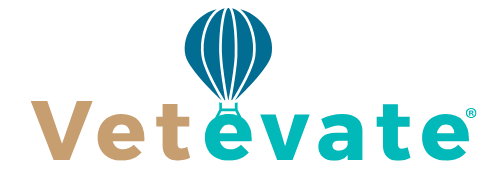Posting Veterinary technician resumes on a specialized Veterinary job board is one of the most effective ways to find a new position in the Animal Health industry. Many professionals still rely on general job sites that lack focus and fail to connect them with employers who truly value their Veterinary expertise.
However, a specialized Veterinary job board is designed specifically for the Veterinary field, providing access to relevant listings and employers actively seeking skilled technicians. These platforms streamline the job search, ensuring that candidates present their qualifications to the right audience. Moreover, by optimizing and maintaining strong Veterinary technician resumes, job seekers can increase visibility and attract attention from leading hospitals, clinics, and research facilities. As a result, understanding how to create, post, and manage these resumes effectively can significantly enhance career prospects in a competitive and rapidly growing industry.
Understanding the Veterinary Technician Job Market
The demand for qualified Veterinary technicians continues to rise as the Animal Health industry expands to meet the growing needs of pet owners and livestock operations. Clinics, hospitals, and research institutions rely heavily on skilled technicians who provide critical support to veterinarians and ensure quality patient care. However, as the field grows, competition for top positions also increases. To stand out, job seekers must learn how to position themselves strategically through well-crafted Veterinary technician resumes and targeted job searches.
Unlike many other fields, Veterinary technicians often face unique hiring requirements. Employers seek candidates with a combination of technical ability, compassion, and communication skills. Therefore, resumes must clearly demonstrate both clinical expertise and a dedication to patient welfare. Furthermore, many clinics prefer applicants who hold certifications, such as the Licensed Veterinary Technician (LVT) or Certified Veterinary Technician (CVT) credentials, which demonstrate commitment and professional credibility.
In addition, geographic trends influence hiring demand. Urban areas may offer numerous opportunities in small-animal practice, while rural communities often seek technicians for mixed-animal or large-animal care. Specialized Veterinary job boards help candidates filter openings by region, practice type, and experience level. Consequently, job seekers can tailor their search to align with personal preferences and long-term career goals.
Moreover, the Veterinary profession places high value on continuing education. Technicians who pursue advanced certifications or attend industry conferences often gain an advantage in the hiring process. Including these achievements in Veterinary technician resumes not only highlights dedication to growth but also signals to employers that candidates bring fresh knowledge and advanced capabilities. As a result, understanding current trends in the job market and presenting them strategically is vital to securing an ideal Veterinary position.
Specialized Job Boards Help Veterinary Technicians
Using a specialized job board provides Veterinary professionals with a focused, efficient, and credible way to find employment opportunities. These platforms are built specifically for Animal Health careers, meaning every listing is relevant and carefully vetted. When job seekers upload Veterinary technician resumes to these boards, they connect directly with employers who understand their skill sets and hiring needs.
Specialized job boards also simplify the search process. Candidates can create detailed profiles that include education, certifications, and areas of expertise, allowing employers to find them based on precise qualifications. In addition, these platforms often feature automated tools that match resumes with the most compatible job openings, saving time and increasing the likelihood of finding the perfect role. Moreover, employers who use these boards are typically more engaged, since they are specifically looking for Veterinary professionals rather than general applicants.
Another advantage of specialized job boards is their ability to enhance visibility. A complete, keyword-optimized profile ensures that hiring managers see Veterinary technician resumes near the top of search results. Some boards also allow candidates to showcase their portfolios, references, and continuing education records, which can strengthen credibility. Furthermore, many platforms include resources such as resume-building guides, interview preparation materials, and career blogs to help candidates improve their applications.
Networking opportunities are another key benefit. Job seekers can participate in virtual career fairs or professional discussions hosted on these platforms. By engaging with these communities, candidates stay informed about emerging trends in Veterinary medicine and connect with potential mentors or future employers. Therefore, a specialized Veterinary job board is more than a job search tool—it is a comprehensive career resource that empowers Veterinary technicians to find rewarding positions aligned with their skills, interests, and aspirations.
Crafting Veterinary Technician Resumes
Strong Veterinary technician resumes are the cornerstone of any successful job search. These documents should effectively communicate technical ability, professionalism, and compassion—qualities that define excellence in Veterinary medicine. However, many applicants struggle to differentiate themselves from other qualified candidates. Crafting a compelling resume that highlights strengths and achievements is essential for attracting employer attention.
The resume should begin with a concise summary that outlines career goals and core competencies. This section should convey enthusiasm for animal care and emphasize the applicant’s dedication to the Veterinary profession. In addition, including measurable accomplishments—such as improved patient recovery rates, streamlined laboratory operations, or successful collaboration with veterinarians—demonstrates tangible results. Employers value candidates who can show evidence of impact in their previous roles.
Presentation and formatting also matter. A clean, well-organized layout with consistent fonts and spacing conveys attention to detail—an essential quality for Veterinary technicians. Moreover, applicants should ensure that their resumes are free from errors, as accuracy reflects professionalism.
When uploading to specialized job boards, job seekers should optimize Veterinary technician resumes with relevant keywords such as “animal care,” “diagnostic support,” and “client communication.” These terms help automated systems match resumes with appropriate listings. However, the language should remain natural and engaging. Furthermore, candidates should highlight certifications, continuing education courses, and professional memberships, as these show dedication to lifelong learning.
Tailoring each resume to the job description also enhances effectiveness. Customizing phrasing and skills to align with the employer’s needs demonstrates initiative and attention to detail. Consequently, a well-crafted resume not only improves visibility on job boards but also leaves a lasting impression on employers reviewing applications.
Optimizing Profiles and Uploading Resumes
Posting Veterinary technician resumes to specialized job boards involves more than just uploading a document—it requires strategic optimization to ensure maximum visibility. Candidates should start by creating a complete profile that mirrors the content of their resume while expanding on certain details. Including certifications, relevant software knowledge, and specialized skills such as anesthesia monitoring or radiology enhances search rankings and helps employers find suitable candidates.
Profile completeness is key. Many job boards prioritize active, detailed profiles in search results, so filling out every section is crucial. Furthermore, using a professional photo and crafting a short, engaging bio adds a personal touch that distinguishes applicants from others. In addition, some platforms allow candidates to attach cover letters or portfolios directly to their profiles, providing a comprehensive view of their qualifications.
When uploading Veterinary technician resumes, it’s best to use PDF formats to preserve formatting and ensure compatibility across devices. File names should include the candidate’s name and profession—for example, “JaneSmith_VeterinaryTechnicianResume.pdf”—to appear professional and searchable. Updating the resume regularly also boosts ranking on job boards, as algorithms favor recent activity.
Moreover, many job boards offer features such as job alerts or automatic matching. Enabling these ensures that candidates are notified as soon as new positions align with their qualifications. This proactive approach increases responsiveness and keeps applicants ahead of the competition. Finally, tracking engagement metrics—such as profile views or application responses—provides valuable insights into how employers interact with posted resumes. By refining keywords, updating information, and maintaining consistency, job seekers can ensure their Veterinary technician resumes reach the right audience and generate more interview opportunities.
Avoiding Common Mistakes in Resume Posting
Even experienced professionals make errors that can undermine their job search. The most common issue when posting Veterinary technician resumes is failing to tailor content for the intended audience. A generic resume may not highlight the specialized skills employers are looking for, such as surgical support or patient triage experience. Therefore, every resume should emphasize the technical and interpersonal abilities most relevant to each role.
Another frequent mistake is neglecting to proofread. Grammatical errors or typos can create negative impressions and suggest carelessness. Since precision is critical in Veterinary care, employers often interpret these mistakes as red flags. Additionally, omitting key details such as certification status or license numbers can delay consideration or even disqualify applicants.
Incomplete online profiles also reduce visibility. Employers searching job boards often filter results by skill, education, or experience level. Candidates who skip profile sections risk being excluded from search results. Furthermore, uploading outdated resumes limits opportunities because it signals disengagement.
Finally, ignoring communication from employers is a missed opportunity. Prompt responses to interview requests or follow-up questions demonstrate professionalism and enthusiasm. By avoiding these mistakes, job seekers increase their credibility and improve their chances of finding a rewarding Veterinary technician job that aligns with their expertise and values.
The Future of Veterinary Technician Careers
The outlook for Veterinary technicians is promising as demand continues to grow across all areas of Animal Health. With advancements in technology, patient care, and telemedicine, technicians play an increasingly vital role in modern Veterinary practices. Specialized job boards will continue to shape how professionals connect with employers, providing more intelligent tools for showcasing Veterinary technician resumes and matching them with ideal opportunities.
Artificial intelligence and data analytics will refine these platforms, helping candidates identify roles that suit their experience, values, and goals. In addition, remote work opportunities in telehealth and consulting will expand, giving Veterinary technicians more flexibility. However, even as technology evolves, the human element remains central to the profession. Compassion, empathy, and hands-on care define successful technicians, and these qualities must always shine through in both resumes and interviews.
Ultimately, those who use specialized job boards strategically will remain ahead of the curve. By creating strong, optimized Veterinary technician resumes, engaging actively on professional platforms, and staying dedicated to growth, job seekers can build lasting, fulfilling careers that make a real difference in the lives of animals and the people who love them.




